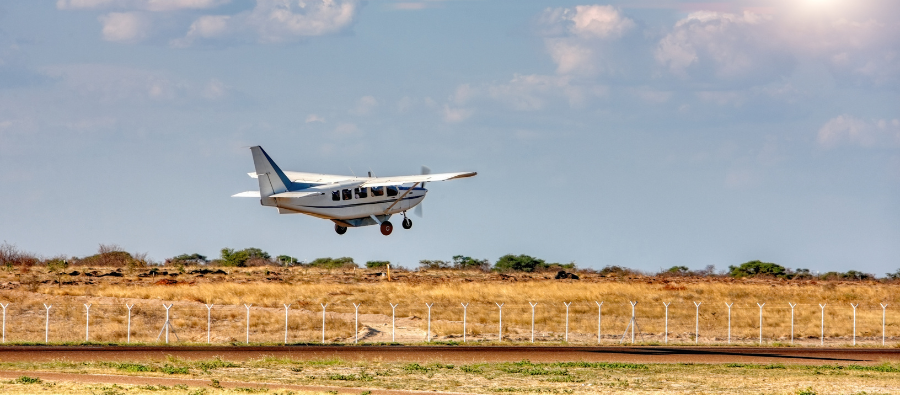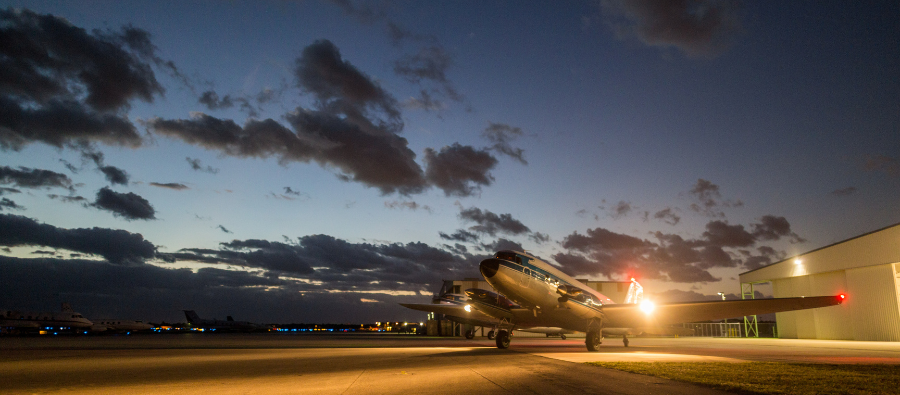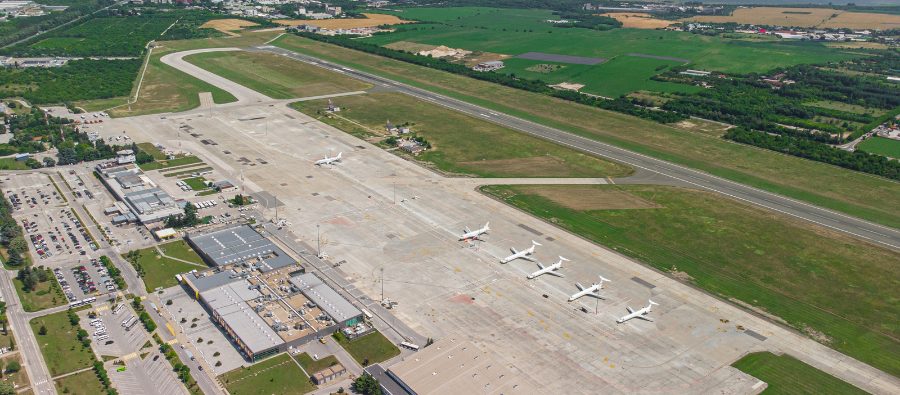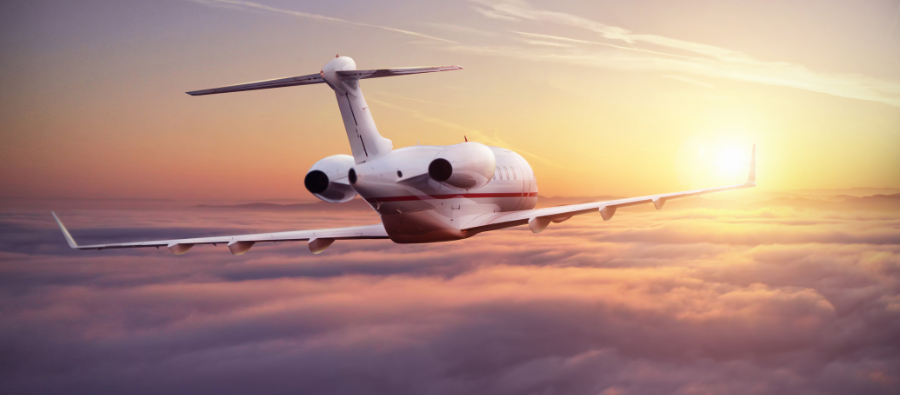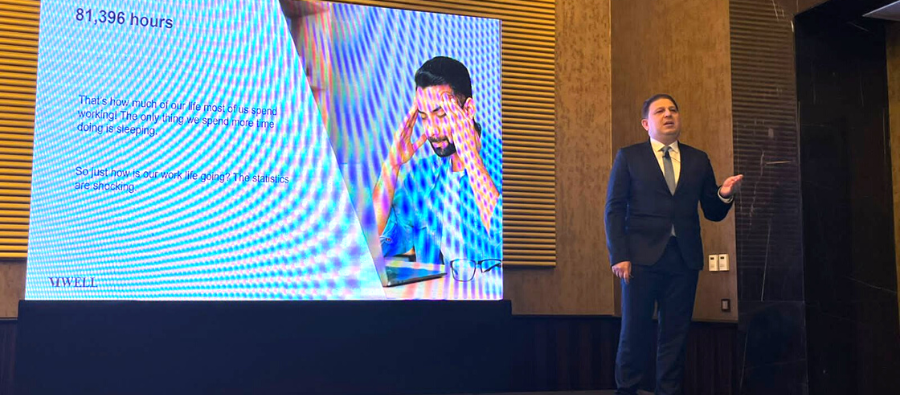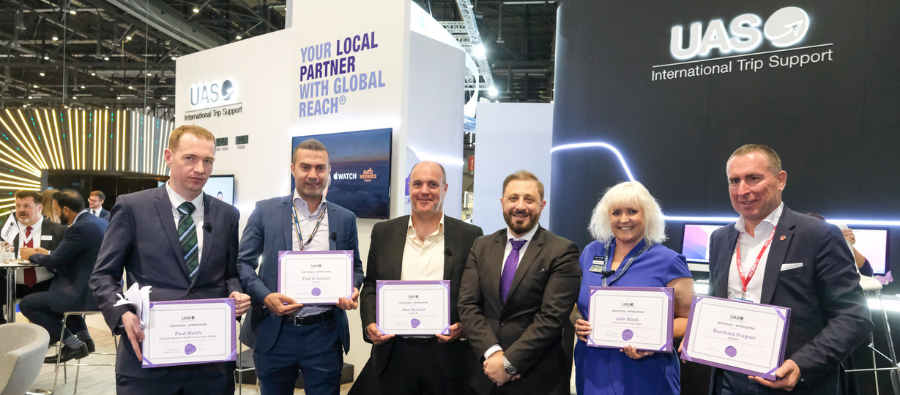CAB (CABINDA, Angola) PPG (PAGO PAGO, American Samoa) LAD (LUANDA, Angola) EVN (YEREVAN, Armenia) ADL (ADELAIDE, Australia) BNE (BRISBANE, Australia) CNS (CAIRNS, Australia) CBR (CANBERRA, Australia) DRW (DARWIN, Australia) MEL (Australia) PER (PERTH, Australia) ROK (ROCKHAMPTON, Australia) SYD (SYDNEY, Australia) TSV (TOWNSVILLE, Australia) GRZ (GRAZ, Austria) INN (INNSBRUCK, Austria) KLU (KLAGENFURT, Austria) LNZ (LINZ, Austria) SZG (SALZBURG, Austria) VIE (VIENNA, Austria) GYD (BAKU, Azerbaijan) HOR (HORTA, Azores) PDL (PONTA DELGADA, Azores) SMA (SANTA MARIA, Azores) TER (TERCEIRA, Azores) BAH (BAHRAIN, Bahrain) BRU (BRUSSELS, Belgium) CRL (CHARLEROI, Belgium) LGG (LIEGE, Belgium) OST (OSTEND, Belgium) COO (COTONOU, Benin) FRW (FRANCISTOWN, Botswana) GBE (GABORONE, Botswana) BBK (KASANE, Botswana) MUB (MAUN, Botswana) BWN (BANDAR SERI BEGAWAN, Brunei) BOJ (BOURGAS, Bulgaria) GOZ (GORNA ORIAHOVITSA, Bulgaria) PDV (PLOVDIV, Bulgaria) SOF (SOFIA, Bulgaria) VAR (VARNA, Bulgaria) BOY (BOBO DIOULASSO, Burkina Faso) OUA (OUAGADOUGOU, Burkina Faso) BJM (BUJUMBURA, Burundi) PNH (PHNOM PENH, Cambodia) REP (SIEM REAP, Cambodia) KOS (SIHANOUKVILLE, Cambodia) DLA (DOUALA, Cameroon) GOU (GAROUA, Cameroon) NSI (YAOUNDE, Cameroon) BVC (BOA VISTA, Cape Verde) RAI (PRAIA, Cape Verde) SID (SAL ISLAND, Cape Verde) VXE (SAO VICENTE, Cape Verde) BGF (BANGUI, Central African Republic) AEH (ABECHE, Chad) NDJ (N'DJAMENA, Chad) PEK (BEIJING, China) KJI (BURQIN COUNTY, China) WUZ (CHAGZHOUDAO, China) NBS (CHANGBAISHAN, China) CGQ (CHANGCHUN, China) CGD (CHANGDE, China) CSX (CHANGSHA, China) CIH (CHANGZHI, China) CZX (CHANGZHOU, China) CTU (CHENGDU, China) CIF (CHIFENG, China) CKG (CHONGQING, China) DLU (DALI, China) DLC (DALIAN, China) DIG (DEQEN, China) DNH (DUNHUANG, China) ENH (ENSHI, China) FOC (FUZHOU, China) KOW (GANZHOU, China) GOQ (GOLMUD, China) CAN (GUANGZHOU, China) KWL (GUILIN, China) KWE (GUIYANG, China) HAK (HAIKOU, China) HLD (HAILAR, China) HDG (HANDAN, China) HGH (HANGZHOU, China) HGZ (HANZHONG, China) HRB (HARBIN, China) HFE (HEIFI, China) HEK (HEIHE, China) HET (HOHHOT, China) HKG (HONG KONG, China) JMU (JIAMUSI, China) YNZ (JIANGSU, China) HIA (JIANGSU, China) JGN (JIAYUGUAN, China) JIL (JILIN, China) TNA (JINAN, China) JHG (JINGHONG, China) KRY (KARAMAY, China) KHG (KASHGAR, China) KMG (KUNMING, China) KCA (KUQA, China) ZGC (LANZHOU, China) LHW (LANZOU CITY, China) LXA (LHASA, China) LYG (LIANYUNGANG, China) LJG (LIJIANG, China) LZH (LIUZHOU, China) MFM (MACAU, China) LUM (MANG CITY, China) MXZ (MEXIAN, China) MDG (MUDANJIANG, China) KHN (NANCHANG, China) NKG (NANJING, China) NTG (NANTONG, China) NGB (NINGBO, China) DSN (ORDOS, China) SYM (PU 'ER, China) IQM (QIEMO, China) TAO (QINGDAO, China) SYX (SANYA, China) PVG (SHANGHAI, China) SHA (SHANGHAI, China) SWA (SHANTOU, China) SHE (SHENYANG, China) SZX (SHENZHEN, China) SJW (SHIJIAZHUANG, China) TCG (TACHENG, China) TYN (TAIYUAN, China) TSN (TIANJIN, China) TGO (TONGLIAO, China) TXN (TUNXI, China) HLH (ULANHOT, China) URC (URUMQI, China) WEH (WEIHAI, China) WNZ (WENZHOU, China) WUA (WUHAI, China) WUH (WUHAN, China) WUX (WUXI, China) XMN (XIAMEN, China) SIA (XIAN, China) RAR (RARATONGA, Cook Islands) XIY (XI'AN, China) XIL (XILINHOT, China) XNN (XINING, China) XUZ (XUZHOU, China) ENY (YAN 'AN, China) YNJ (YANJI, China) YNT (YANTAI, China) YIH (YICHANG, China) INC (YINCHUAN, China) YIN (YINING, China) YIW (YIWU, China) UYN (YULIN, China) TCZ (YUNNAN, China) DYG (ZHANGJIAJIE, China) ZHA (ZHANJIANG, China) ZAT (ZHAOTONG, China) CGO (ZHENZHOU, China) HSN (ZHOUSHAN, China) ZUH (ZHUHAI, China) ABJ (ABIDJAN, Cote Divoire) ASK (YAMOUSSOKRO, Cote Divoire) BWK (BRAC, Croatia) DBV (DUBROVNIK, Croatia) LSZ (LOSINJ, Croatia) OSI (OSIJEK, Croatia) PUY (PULA, Croatia) RJK (RIJEKA, Croatia) SPU (SPLIT, Croatia) ZAD (ZADAR, Croatia) ZAG (ZAGREB, Croatia) LCA (LARNACA, Cyprus) PFO (PAPHOS, Cyprus) BRQ (BRNO, Czech Republic) KLV (KARLOVY VARY, Czech Republic) OSR (OSTRAVA, Czech Republic) PRG (PRAGUE, Czech Republic) GOM (GOMA, Democratic Republic of the Congo) KGA (KANANGA, Democratic Republic of the Congo) NLO (KINSHASA, Democratic Republic of the Congo) FIH (KINSHASA, Democratic Republic of the Congo) FKI (KISANGANI, Democratic Republic of the Congo) FBM (LUBUMBASHI, Democratic Republic of the Congo) MDK (MBANDAKA, Democratic Republic of the Congo) MJM (MBUJI MAYA, Democratic Republic of the Congo) AAL (AALBORG, Denmark) AAR (AARHUS, Denmark) BLL (BILLUND, Denmark) CPH (COPENHAGEN, Denmark) RKE (COPENHAGEN, Denmark) EBJ (ESBJERG, Denmark) SGD (SONDERBORG, Denmark) JIB (DJIBOUTI, Djibouti) ABS (ABU SIMBEL, Egypt) DBB (AL ALAMAIN, Egypt) HBE (ALEXANDRIA, Egypt) ALY (ALEXANDRIA, Egypt) ATZ (ASSIUT, Egypt) ASW (ASWAN, Egypt) CAI (CAIRO, Egypt) AAC (EL ARISH, Egypt) HRG (HURGHADA, Egypt) LXR (LUXOR, Egypt) RMF (MARSA ALAM, Egypt) MUH (MERSA MATRUH, Egypt) PSD (PORT SAID, Egypt) SSH (SHARM EL SHEIK, Egypt) TCP (TABA, Egypt) BSG (BATA, Equatorial Guinea) SSG (MALABO, Equatorial Guinea) ASM (ASMARA, Eritrea) ASA (ASSAB, Eritrea) ADD (ADDIS ABABA, Ethiopia) AXU (AXUM, Ethiopia) BJR (BAHAR DAR, Ethiopia) DIR (DIRE DAWA, Ethiopia) GMB (GAMBELA, Ethiopia) GDQ (GONDAR, Ethiopia) JIJ (JIJIGA, Ethiopia) JIM (JIMMA, Ethiopia) MQX (MAKALE, Ethiopia) NAN (NADI, Fiji) SVU (SAVUSAVU, Fiji) SUV (SUVA, Fiji) HEL (HELSINKI, Finland) IVL (IVALO, Finland) JOE (JOENSUU, Finland) JYV (JYVASKYLA, Finland) KAJ (KAJAANI, Finland) KEM (KEMI, Finland) KTT (KITTILA, Finland) KUO (KUOPIO, Finland) KAO (KUUSAMO, Finland) LPP (LAPPEENRANTA, Finland) MHQ (MARIEHAMN, Finland) OUL (OULU, Finland) POR (PORI, Finland) RVN (ROVANIEMI, Finland) SVL (SAVONLINNA, Finland) MPL (MONTPELLIER, France) NTE (NANTES, France) NCE (NICE, France) LBG (PARIS, France) CDG (PARIS, France) TMP (TAMPERE, Finland) TKU (TURKU, Finland) VAA (VAASA, Finland) MLH (BASLE, France) BVA (BEAUVAIS, France) BOD (BORDEAUX, France) CLY (CALVI, France) CHR (CHATEAUROUX, France) CER (CHERBOURG, France) FSC (FIGARI, France) LIL (LILLE, France) LDE (LOURDES, France) LYS (LYONS, France) LYN (LYONS, France) MRS (MARSEILLE, France) ORY (PARIS, France) PUF (PAU, France) PGF (PERPIGNAN, France) SXB (STRASBOURG, France) TLN (TOULON, France) TLS (TOULOUSE, France) Airbus (TOULOUSE, France) XCR (VATRY, France) PPT (PAPEETE, French Polynesia) MVB (FRANCEVILLE, Gabon) LBV (LIBREVILLE, Gabon) POG (PORT GENTIL, Gabon) BJL (BANJUL, Gambia) BUS (BATUMI, Georgia) KUT (KUTAISI, Georgia) TBS (TBILISI, Georgia) TXL (BERLIN, Germany) SXF (BERLIN, Germany) CGN (COLOGNE, Germany) DRS (DRESDEN, Germany) DUS (DUSSELDORF, Germany) FRA (FRANKFURT, Germany) HHN (HAHN, Germany) HAM (HAMBURG, Germany) HAJ (HANNOVER, Germany) LEJ (LEIPZIG, Germany) MUC (MUNICH, Germany) NUE (NURENBERG, Germany) STR (STUTTGART, Germany) ACC (ACCRA, Ghana) KMS (KUMASI, Ghana) TKD (TAKORADI, Ghana) TML (TAMALE, Ghana) GPA (ARAXOS, Greece) ATH (ATHENS, Greece) CHQ (CHANIA, Greece) JKH (CHIOS, Greece) CFU (CORFU, Greece) HER (HERAKLION, Greece) IOA (IOANNINA, Greece) KLX (KALAMATA, Greece) AOK (KARPATHOS, Greece) KVA (KAVALA, Greece) EFL (KEFALLINIA, Greece) KGS (KOS, Greece) LXS (LEMNOS, Greece) JMK (MYKONOS, Greece) MJT (MYTILINI, Greece) PVK (PREVEZA, Greece) RHO (RHODES, Greece) SMI (SAMOS, Greece) JSH (SITIA, Greece) JSI (SKIATHOS, Greece) SKG (THESSALONIKI, Greece) JTR (THIRA, Greece) VOL (VOLOS, Greece) ZTH (ZAKINTHOS, Greece) GUM (GUAM, Guam) CKY (CONAKRY, Guinea) OXB (BISSAU, Guinea-Bissau) BUD (BUDAPEST, Hungary) KEF (KEFLAVIK, Iceland) RKV (REYKJAVIK, Iceland) AMD (AHMEDABAD, India) ATQ (AMRISTAR, India) IXU (AURANGABAD, India) BLR (BANGALORE, India) BBI (BHUBANESHWAR, India) MAA (CHENNAI, India) CJB (COIMBATORE, India) DEL (DELHI, India) GOI (GOA, India) HYD (HYDERABAD, India) JAI (JAIPUR, India) COK (KOCHI, India) CCU (KOLKATA, India) CCJ (KOZHIKODE, India) IXE (MANGALORE, India) BOM (MUMBAI, India) NAG (NAGPUR, India) PNQ (PUNE, India) TRZ (TIRUCHIRAPALLI, India) TRV (TRIVANDRUM, India) VNS (VARANASI, India) VTZ (VISAKHAPATNAM, India) AMQ (AMBON, Indonesia) BPN (BALIKPAPAN, Indonesia) BTJ (BANDA ACEH, Indonesia) TKG (BANDAR LAMPUNG, Indonesia) BDO (BANDUNG, Indonesia) BDJ (BANJARMARSIN, Indonesia) BTH (BATAM, Indonesia) BKS (BENGKULU, Indonesia) BIK (BIAK, Indonesia) BMU (BIMA, Indonesia) CXP (CILACEP, Indonesia) DPS (DENPASAR, Indonesia) DIL (DILI, Indonesia) DUM (DUMAI, Indonesia) ENE (ENDE, Indonesia) GTO (GORONTALO, Indonesia) CGK (JAKARTA, Indonesia) HLP (JAKARTA, Indonesia) PCB (JAKARTA, JAVA ISLAND, Indonesia) DJB (JAMBI, Indonesia) DJJ (JAYAPURA, Indonesia) KNG (KAIMANA, Indonesia) KDI (KENDARI, Indonesia) KRC (KERINCI, Indonesia) KNO (KUALANAMU, Indonesia) KOE (KUPANG, Indonesia) LBJ (LABUAN BAJO, Indonesia) LUV (LANGGUR, Indonesia) LOP (LOMBOK, Indonesia) LUW (LUWUK, Indonesia) MLG (MALANG, Indonesia) MDC (MANADO, Indonesia) MKU (MANOKUARI, Indonesia) MKW (MANOKWARI, Indonesia) AMI (MATARAM, Indonesia) MOF (MAUMERE, Indonesia) MES (MEDAN, Indonesia) MKQ (MERAUKE, Indonesia) NBX (NABIRE, Indonesia) NTX (NATUNA, Indonesia) PDG (PADANG, Indonesia) PKY (PALANGKARAYA, Indonesia) PLM (PALEMBANG, Indonesia) PLW (PALU, Indonesia) PGK (PANGHALPINANG, Indonesia) PKN (PANGKALAN BUN, Indonesia) PKU (PEKANBARU, Indonesia) PNK (PONTIANAK, Indonesia) SRI (SAMARINDA, Indonesia) SMQ (SAMPIT, Indonesia) SRG (SEMARANG, Indonesia) SQT (SIBORONG-BORONG, Indonesia) SOQ (SORONG, Indonesia) SWQ (SUMBAWA BESA, Indonesia) SUB (SURABAYA, Indonesia) SOC (SURAKARTA, Indonesia) BLQ (BOLOGNA, Italy) BZO (BOLZANO, Italy) VBS (BRESCIA, Italy) BDS (BRINDISI, Italy) CAG (CAGLIARI, Italy) TNJ (TANJUNG PINANG, Indonesia) BEJ (TANJUNG REDEB, Indonesia) TRK (TARAKAN, Indonesia) TTE (TERNATE, Indonesia) TIM (TIMIKA, Indonesia) UPG (UJUNG PANDANG, Indonesia) WGP (WAINGAPU, Indonesia) JOG (YOKYAKARTA, Indonesia) ORK (CORK, Ireland) DUB (DUBLIN, Ireland) SNN (SHANNON, Ireland) AHO (ALGHERO, Italy) AOI (ANCONA, Italy) BRI (BARI, Italy) BGY (BERGAMO, Italy) CTA (CATANIA, Italy) CIY (COMISO, Italy) CRV (CROTONE, Italy) CUF (CUNEO, Italy) FLR (FLORENCE, Italy) FOG (FOGGIA, Italy) FRL (FORLI, Italy) GOA (GENOA, Italy) GRS (GROSSETO, Italy) SUF (LAMEZIA, Italy) LMP (LAMPEDUSA, Italy) LIN (MILAN, Italy) MXP (MILAN, Italy) NAP (NAPLES, Italy) OLB (OLBIA, Italy) PMO (PALERMO, Italy) PMF (PARMA, Italy) PEG (PERUGIA, Italy) PSR (PESCARA, Italy) PSA (PISA, Italy) REG (REGGIO DI CALABRIA, Italy) RMI (RIMINI, Italy) CIA (ROME, Italy) FCO (ROME, Italy) QSR (SALERNO, Italy) SAY (SIENA, Italy) TAR (TARANTO, Italy) TTB (TORTOLI, Italy) TPS (TRAPANI, Italy) TSF (TREVISO, Italy) TRS (TRIESTE, Italy) TRN (TURIN, Italy) VCE (VENICE, Italy) VRN (VERONA, Italy) AOJ (AOMORI, Japan) AKJ (ASAHIKAWA, Japan) CTS (CHITOSE, Japan) FUK (FUKUOKA, Japan) FKS (FUKUSHIMA, Japan) HAC (HACHIJYOJIMA, Japan) HKD (HAKODATE, Japan) HNA (HANAMAKI, Japan) HIJ (HIROSHIMA, Japan) IWJ (IWAMI, Japan) IZO (IZUMO, Japan) KOJ (KAGOSHIMA, Japan) KMQ (KANAZAWA, Japan) KKJ (KITAKYUSHU, Japan) UKB (KOBE, Japan) KCZ (KOCHI, Japan) KMJ (KUMAMOTO, Japan) KUH (KUSHIRO, Japan) MMJ (MATSUMOTO, Japan) MYJ (MATSUYAMA, Japan) MSJ (MISAWA, Japan) KMI (MIYAZAKI, Japan) NGS (NAGASAKI, Japan) NKM (NAGOYA, Japan) NGO (NAGOYA, Japan) SHB (NAKASHIBETSU, Japan) KIJ (NIIGATA, Japan) ONJ (ODATE-NOSHIRO, Japan) OIT (OITA, Japan) OKJ (OKAYAMA, Japan) OKI (OKI, Japan) OKA (OKINAWA, Japan) OKE (OKINOERABU, Japan) IBR (OMITAMA, Japan) KIX (OSAKA, Japan) ITM (OSAKA, Japan) MMB (OZARA, Japan) RIS (RISHIRI, Japan) HSG (SAGA, Japan) OKD (SAPPORO, Japan) SDJ (SENDAI, Japan) FSZ (SHIZUOKA, Japan) SYO (SHONAI, Japan) TAK (TAKAMATSU, Japan) TNE (TANEGASHIMA, Japan) WKJ (WAKKANAI, Japan) GAJ (YAMAGATA, Japan) YGJ (YONAGO, Japan) RNJ (YORON ISLAND, Japan) EDL (ELDORET, Kenya) GAS (GARISSA, Kenya) KIS (KISUMU, Kenya) LAU (LAMU, Kenya) LOK (LODWAR, Kenya) OBO (TOKACHI, Japan) TKN (TOKUNOSHIMA, Japan) TKS (TOKUSHIMA, Japan) TYO (TOKYO, Japan) HND (TOKYO, Japan) NRT (TOKYO, Japan) TTJ (TOTTORI, Japan) TOY (TOYAMA, Japan) TJH (TOYOOKA, Japan) UBJ (UBE, Japan) SHM (WAKAYAMA, Japan) LKG (LOKICHOGGIO, Kenya) MYD (MALINDI, Kenya) NDE (MANDERA, Kenya) MBA (MOMBASA, Kenya) NBO (NAIROBI, Kenya) WIL (NAIROBI, Kenya) NUU (NAKURU, Kenya) NYK (NANYUKI, Kenya) UKA (UKUNDA, Kenya) WJR (WAJIR, Kenya) RIX (RIGA, Latvia) BEY (BEIRUT, Lebanon) MLW (MONROVIA, Liberia) ROB (MONROVIA, Liberia) KUN (KAUNAS, Lithuania) PLQ (PALANGA, Lithuania) SQQ (SIAULIAI, Lithuania) VNO (VILNIUS, Lithuania) LUX (LUXEMBOURG, Luxembourg) ANM (ANTALAHA, Madagascar) TNR (ANTANANARIVO, Madagascar) DIE (ANTSIRANANA, Madagascar) WAI (ANTSOHIHY, Madagascar) WFI (FIANARANTSOA, Madagascar) MJN (MAHAJANGA, Madagascar) MXT (MAINTIRANO, Madagascar) MNJ (MANANJARY, Madagascar) MOQ (MORONDAVA, Madagascar) NOS (NOSY BE, Madagascar) SVB (SAMBAVA, Madagascar) TMM (TAMATAVE, Madagascar) FTU (TOLAGNARO, Madagascar) TLE (TOLIARA, Madagascar) BLZ (BLANTYRE, Malawi) LLW (LILONGWE, Malawi) BKI (KOTA KINABULU, Malaysia) KUL (KUALA LUMPUR, Malaysia) KCH (KUCHING, Malaysia) LBU (LABUAN, Malaysia) MYY (MIRI, Malaysia) TWU (TAWAU, Malaysia) BKO (BAMAKO, Mali) GAQ (GAO, Mali) GUD (GOUNDAM, Mali) KYS (KAYES, Mali) MZI (MOPTI, Mali) TOM (TOMBOUCTOU, Mali) MAJ (MAJURO, Marshall Islands) ATR (ATAR, Mauritania) NDB (NOUADHIBOU, Mauritania) NKC (NOUAKCHOTT, Mauritania) MRU (MAURITIUS, Mauritius) AGA (AGADIR, Morocco) AHU (AL-HOCEIMA, Morocco) CMN (CASABLANCA, Morocco) VIL (DAKHLA, Morocco) NDR (EL AROUI, Morocco) ERH (ERRACHIDIA, Morocco) ESU (ESSAOUIRA, Morocco) FEZ (FEZ, Morocco) EUN (LAAYOUNE, Morocco) RAK (MARRAKECH, Morocco) NDR (NADOR, Morocco) OZZ (OUARZAZATE, Morocco) OUD (OUJDA, Morocco) RBA (RABAT, Morocco) TTA (TAN TAN, Morocco) TNG (TANGIER, Morocco) TTU (TETOUAN, Morocco) BEW (BEIRA, Mozambique) INH (INHAMBANE, Mozambique) VXC (LICHINGA, Mozambique) MPM (MAPUTO, Mozambique) MNC (NACALA, Mozambique) APL (NAMPULA, Mozambique) POL (PEMBA, Mozambique) UEL (QUELIMANE, Mozambique) TET (TETE, Mozambique) LUD (LUDERITZ, Namibia) OND (ONDANGWA, Namibia) OMD (ORANJEMUND, Namibia) TSB (TSUMEB, Namibia) WVB (WALVIS BAY, Namibia) ERS (WINDHOEK, Namibia) WDH (WINDHOEK, Namibia) AMS (AMSTERDAM, Netherlands) EIN (EINDHOVEN, Netherlands) GRQ (GRONINGEN, Netherlands) MST (MAASTRICHT, Netherlands) RTM (ROTTERDAM, Netherlands) NOU (NOUMEA, New Caledonia) AKL (AUCKLAND, New Zealand) CHC (CHRISTCHURCH, New Zealand) DUD (DUNEDIN, New Zealand) GIS (GISBORNE, New Zealand) HLZ (HAMILTON, New Zealand) IVC (INVERCARGILL, New Zealand) ZQN (QUEENSTOWN, New Zealand) ROT (ROTORUA, New Zealand) WLG (WELLINGTON, New Zealand) AJY (AGADES, Niger) NIM (NIAMEY, Niger) ZND (ZINDER, Niger) ABV (ABUJA, Nigeria) BNI (BENIN CITY, Nigeria) CBQ (CALABAR, Nigeria) ENU (ENUGU, Nigeria) JOS (JOS, Nigeria) KAD (KADUNA, Nigeria) KAN (KANO, Nigeria) LOS (LAGOS, Nigeria) MIU (MAIDUGURI, Nigeria) QOW (OWERRI, Nigeria) PHC (PORT HARCOURT, Nigeria) SKO (SOKOTO, Nigeria) YOL (YOLA, Nigeria) SPN (SAIPAN ISLAND, Northern Mariana Islands) AES (AALESUND, Norway) BGO (BERGEN, Norway) BOO (BODO, Norway) EVE (EVENES, Norway) HAU (HAUGESUND, Norway) OSL (OSLO, Norway) RYG (RYGGE, Norway) SVG (STAVANGER, Norway) TOS (TROMSO, Norway) TRD (TRONDHEIM, Norway) MCT (MUSCAT, Oman) SLL (SALALAH, Oman) LYP (FAISALABAD, Pakistan) ISB (ISLAMABAD, Pakistan) KHI (KARACHI, Pakistan) LHE (LAHORE, Pakistan) MUX (MULTAN, Pakistan) WNS (NAWABSHAH, Pakistan) PSI (PASNI, Pakistan) PEW (PESHAWAR, Pakistan) UET (QUETTA, Pakistan) SKT (SIALKOT, Pakistan) SKZ (SUKKUR, Pakistan) TUK (TURBAT, Pakistan) MPH (MALAY, Philippines) MNL (MANILA, Philippines) MBT (MASBATE, Philippines) OZC (OZAMIS, Philippines) PAG (PAGADIAN, Philippines) PPS (PUERTO PRINCESA, Philippines) SFS (SUBIC BAY, Philippines) TAC (TACLOBAN, Philippines) TAG (TAGBILARAN, Philippines) BXU (BUTUAN, Philippines) CGY (CAGAYAN DE ORO, Philippines) CEB (CEBU, Philippines) CBO (COTABATO, Philippines) DVO (DAVAO, Philippines) GES (GENERAL SANTOS, Philippines) ILO (ILOILO, Philippines) KLO (KALIBO, Philippines) LAO (LAOAG, Philippines) LGP (LEGASPI, Philippines) CRK (MABALACAT CITY, Philippines) ZAM (ZAMBOANGA, Philippines) GDN (GDANSK, Poland) KTW (KATOWICE, Poland) KRK (KRAKOW, Poland) LCJ (LODZ, Poland) LUZ (LUBLIN, Poland) POZ (POZNAN, Poland) RDO (RADOM, Poland) RZE (RZESZOW, Poland) SZZ (SZCZECIN, Poland) WAW (WARSAW, Poland) WRO (WROCŁAW, Poland) BYJ (BEJA, Portugal) FAO (FARO, Portugal) FNC (FUNCHAL, Portugal) LIS (LISBON, Portugal) OPO (PORTO, Portugal) PXO (PORTO SANTO, Portugal) RUN (SAINT DENIS, Reunion) ARW (ARAD, Romania) BCM (BACAU, Romania) OTP (BUCHAREST, Romania) BBU (BUCHAREST, Romania) CLJ (CLUJ-NAPOCA, Romania) CND (CONSTANTA, Romania) CRA (CRAIOVA, Romania) IAS (IASI, Romania) SUJ (SATU MARE, Romania) SBZ (SIBIU, Romania) SCV (SUCEAVA, Romania) TGM (TARGU-MURES, Romania) TSR (TIMISOARA, Romania) ABA (ABAKAN, Russia) BAX (BARNAUL, Russia) BQS (BLAGOVESHENSK, Russia) BTK (BRATSK, Russia) BZK (BRYANSK, Russia) SVX (EKATERINBURG, Russia) IKT (IRKUTSK, Russia) KGD (KALININGRAD, Russia) KZN (KAZAN, Russia) KEJ (KEMOROVO, Russia) KHV (KHABAROVSK, Russia) KRR (KRASNODAR, Russia) MRV (MINERALNYE VODY, Russia) SVO (MOSCOW, Russia) DME (MOSCOW, Russia) MMK (MURMANSK, Russia) OVB (NOVOSIBIRSK, Russia) PEE (PERM, Russia) PKC (PETROPAVLOVSK, Russia) ROV (ROSTOV ON DON, Russia) LED (SAINT PETERSBURG, Russia) KUF (SAMARA, Russia) AER (SOCHI, Russia) UFA (UFA, Russia) KGL (KIGALI, Rwanda) AHB (ABHA, Saudi Arabia) HOF (AL AHASA, Saudi Arabia) AJF (AL JAWF, Saudi Arabia) ABT (AL-BAHA, Saudi Arabia) AKH (AL-KHARJ, Saudi Arabia) DMM (DAMMAM, Saudi Arabia) DHA (DHAHRAN, Saudi Arabia) GIZ (GIZAN, Saudi Arabia) URY (GURAYAT, Saudi Arabia) HAS (HAIL, Saudi Arabia) JED (JEDDAH, Saudi Arabia) KMX (KHAMIS MUSHAIT, Saudi Arabia) MED (MEDINA, Saudi Arabia) EAM (NEJRAN, Saudi Arabia) AQI (QAISUMAH, Saudi Arabia) ELQ (QASSIM, Saudi Arabia) RAH (RAFHA, Saudi Arabia) OEY (RIYADH, Saudi Arabia) RUH (RIYADH, Saudi Arabia) TUU (TABUK, Saudi Arabia) TIF (TAIF, Saudi Arabia) TUI (TURAIF, Saudi Arabia) SEZ (MAHE, Seychelles) FNA (FREETOWN, Sierra Leone) SIN (SINGAPORE, Singapore) XSP (SINGAPORE, Singapore) BTS (BRATISLAVA, Slovakia) BFN (BLOEMFONTEIN, South Africa) CPT (CAPE TOWN, South Africa) DUR (DURBAN, South Africa) JNB (JOHANNESBURG, South Africa) KIM (KIMBERLEY, South Africa) PLZ (PORT ELIZABETH, South Africa) CJJ (CHEONGJU, South Korea) CHN (CHONGJU, South Korea) WAE (WADI AD DAWASIR, Saudi Arabia) EJH (WEJH, Saudi Arabia) YNB (YANBU, Saudi Arabia) DSS (DAKAR, Senegal) XLS (SAINT LOUIS, Senegal) BEG (BELGRADE, Serbia) INI (NIS, Serbia) TAE (DAEGU AFB, South Korea) KWJ (GWANGJU, South Korea) CJU (JEJU, South Korea) MWX (MUAN, South Korea) PUS (PUSAN, South Korea) SSN (SEOUL, South Korea) GMP (SEOUL, South Korea) ICN (SEOUL, South Korea) YNY (YANGYANG, South Korea) JUB (JUBA, South Sudan) WUU (WAU, South Sudan) ALC (ALICANTE, Spain) LEI (ALMERIA, Spain) ACE (ARRECIFE, Spain) BJZ (BADAJOZ, Spain) BCN (BARCELONA, Spain) BIO (BILBAO, Spain) RGS (BURGOS, Spain) ODB (CORDOBA, Spain) FUE (FUERTEVENTURA, Spain) GRO (GERONA, Spain) GRX (GRANADA, Spain) HSK (HUESCA, Spain) IBZ (IBIZA, Spain) XRY (JEREZ DE LA FRONTERA, Spain) LCG (LA CORUNA, Spain) RJL (LA RIOJA, Spain) LPA (LAS PALMAS, Spain) LEN (LEON, Spain) MAD (MADRID, Spain) CQM (MADRID, Spain) ECV (MADRID, Spain) MAH (MAHON, Spain) AGP (MALAGA, Spain) MJV (MURCIA, Spain) OVD (OVIEDO, Spain) PMI (PALMA, Spain) LESB (PALMA, Spain) PNA (PAMPLONA, Spain) REU (REUS, Spain) QSA (SABADELL, Spain) SLM (SALAMANCA, Spain) EAS (SAN SEBASTIAN, Spain) SPC (SANTA CRUZ, Spain) SDR (SANTANDER, Spain) SCQ (SANTIAGO, Spain) SVQ (SEVILLA, Spain) TFN (TENERIFE, Spain) TFS (TENERIFE, Spain) VLC (VALENCIA, Spain) VLL (VALLADOLID, Spain) VGO (VIGO, Spain) VIT (VITORIA, Spain) ZAZ (ZARAGOZA, Spain) DOG (DONGOLA, Sudan) ELF (EL FASHAR, Sudan) EBD (EL OBIED, Sudan) EGN (GENEINA, Sudan) KDX (KADUGLI, Sudan) KSL (KASSALA, Sudan) KRT (KHARTOUM, Sudan) MAK (MALAKAL, Sudan) MWE (MEROWE, Sudan) UYL (NYALA, Sudan) PZU (PORT SUDAN, Sudan) RBX (RUMBEK, Sudan) GOT (GOTHENBURG, Sweden) LLA (LULEA, Sweden) MMX (MALMO, Sweden) NYO (NYKOPING, Sweden) ORB (OREBRO, Sweden) ARN (STOCKHOLM, Sweden) UME (UMEA, Sweden) VST (VASTERAS, Sweden) VXO (VAXJO, Sweden) BSL (BASEL-MULHOUSE, Switzerland) BRN (BERN, Switzerland) GVA (GENEVA, Switzerland) ZRH (ZURICH, Switzerland) KHH (KAOHSIUNG, Taiwan) TXG (TAICHUNG, Taiwan) RMQ (TAICHUNG, Taiwan) TNN (TAINAN, Taiwan) TSA (TAIPEI, Taiwan) TPE (TAIPEI, Taiwan) TTT (TAITUNG, Taiwan) ARK (ARUSHA, Tanzania) DAR (DAR-ES-SALAAM, Tanzania) DOD (DODOMA, Tanzania) TKQ (KIGOMA, Tanzania) JRO (KILIMANJARO, Tanzania) MYW (MTWARA, Tanzania) MWZ (MWANZA, Tanzania) (SONGWE, Tanzania) TBO (TABORA, Tanzania) TGT (TANGA, Tanzania) ZNZ (ZANZIBAR, Tanzania) BKK (BANGKOK, Thailand) DMK (BANGKOK, Thailand) CNX (CHIANG MAI, Thailand) CEI (CHIANG RAI, Thailand) HDY (HAT YAI, Thailand) HHQ (HUA HIN, Thailand) KKC (KHON KAEN, Thailand) USM (KOH SAMUI, Thailand) KBV (KRABI, Thailand) NAK (NAKHON RATCHASIMA, Thailand) PHS (PHITSANULOK, Thailand) HKT (PHUKET, Thailand) UTP (RAYONG, Thailand) URT (SURAT THANI, Thailand) UBP (UBON RATCHATHANI, Thailand) UTH (UDON THANI, Thailand) LFW (LOME, Togo) LRL (NIAMTOUGOU, Togo) TBU (FUA' AMOTU, Tonga) DJE (DJERBA, Tunisia) NBE (ENFIDHA, Tunisia) MIR (MONASTIR, Tunisia) SFA (SFAX, Tunisia) TBJ (TABARKA, Tunisia) TOE (TOZEUR, Tunisia) TUN (TUNIS, Tunisia) ADA (ADANA, Turkey) ADF (ADIYAMAN, Turkey) AJI (AGRI, Turkey) ESB (ANKARA, Turkey) HTY (ANTAKYA, Turkey) AYT (ANTALYA, Turkey) BZI (BALIKESIR, Turkey) BAL (BATMAN, Turkey) BJV (BODRUM, Turkey) CKZ (CANAKKALE, Turkey) DNZ (CARDAK, Turkey) TEQ (CORLU, Turkey) DLM (DALAMAN, Turkey) DIY (DIYARBAKIR, Turkey) EDO (EDREMIT, Turkey) EZS (ELAZIG, Turkey) ERC (ERZINCAN, Turkey) ERZ (ERZURUM, Turkey) SAW (ISTANBUL, Turkey) IST (ISTANBUL, Turkey) ADB (IZMIR, Turkey) KCO (IZMIT, Turkey) KCM (KAHRAMANMARAS, Turkey) KSY (KARS, Turkey) ASR (KAYSERI, Turkey) KYA (KONYA, Turkey) KZR (KUTAHYA, Turkey) MLX (MALAYTA, Turkey) MQM (MARDIN, Turkey) MZH (MERZIFON, Turkey) MSR (MUS, Turkey) AOE (ESKISEHIR, Turkey) GZT (GAZIANTEP, Turkey) GZP (GAZIPASA, Turkey) GNY (GOLGEN, Turkey) IGD (IGDIR, Turkey) UAB (INCIRLIK AIR BASE, Turkey) ISE (ISPARTA, Turkey) NAV (NEVESEHIR, Turkey) TZK (NEVSEHIR, Turkey) SZF (SAMSUN, Turkey) SFQ (SANLIURFA, Turkey) SSX (SANSUN, Turkey) SXZ (SIIRT, Turkey) NOP (SINOP, Turkey) VAS (SIVAS, Turkey) TJK (TOKAT, Turkey) TZX (TRABZON, Turkey) USQ (USAK, Turkey) VAN (VAN, Turkey) YEI (YENISEHIR, Turkey) EBB (ENTEBEE, Uganda) DNK (DNEPROPETROVSK, Ukraine) DOK (DONETSK, Ukraine) IEV (KIEV, Ukraine) KBP (KIEV, Ukraine) LWO (LVOV, Ukraine) ODS (ODESSA, Ukraine) SIP (SIMFERAPOL, Ukraine) DWC (DUBAI, United Arab Emirates) DXB (DUBAI, United Arab Emirates) FJR (FUJAIRAH, United Arab Emirates) SHJ (SHARJAH, United Arab Emirates) ABZ (ABERDEEN, United Kingdom) BFS (BELFAST, United Kingdom) BHD (BELFAST, United Kingdom) BHX (BIRMINGHAM, United Kingdom) BOH (BOURNEMOUTH, United Kingdom) BRS (BRISTOL, United Kingdom) CWL (CARDIFF, United Kingdom) DSA (DONCASTER SHEFFIELD, United Kingdom) EMA (EAST MIDLANDS, United Kingdom) EDI (EDINBURGH, United Kingdom) GLA (GLASGOW, United Kingdom) LBA (LEEDS, United Kingdom) LPL (LIVERPOOL, United Kingdom) LTN (LONDON, United Kingdom) LTN (LONDON, United Kingdom) LCY (LONDON, United Kingdom) STN (LONDON, United Kingdom) LGW (LONDON, United Kingdom) LHR (LONDON, United Kingdom) MAN (MANCHESTER, United Kingdom) MAN (MANCHESTER, United Kingdom) NCL (NEWCASTLE, United Kingdom) NCL (NEWCASTLE, United Kingdom) SOU (SOUTHAMPTON, United Kingdom) SON (ESPIRITU SANTO, Vanuatu) VLI (PORT VILA, Vanuatu) BMV (BUON MA THUOT, Vietnam) VCA (CAN THO, Vietnam) VCL (CHU LAI, Vietnam) DLI (DA LAT, Vietnam) DAD (DA NANG, Vietnam) PQC (DUONG DONG, Vietnam) PXU (GIA LAI, Vietnam) HPH (HAIPHONG, Vietnam) HAN (HANOI, Vietnam) SGN (HO CHI MINH, Vietnam) HUI (HUE, Vietnam) CXR (NHA TRANG, Vietnam) VDH (QUANG BINH, Vietnam) UIH (QUI NHON, Vietnam) VKG (RACH GIA, Vietnam) TXD (THANH HOA, Vietnam) TBB (TUY HOA, Vietnam) VII (VINH, Vietnam) CIP (CHIPATA, Zambia) KAA (KASAMA, Zambia) KIW (KITWE, Zambia) LVI (LIVINGSTONE, Zambia) LUN (LUSAKA, Zambia) MFU (MFUWE, Zambia) NLA (NDOLA, Zambia) SLI (SOLWEZI, Zambia) BUQ (BULAWAYO, Zimbabwe) BFO (CHIREDZI, Zimbabwe) HWN (HWANGE, Zimbabwe) KAB (KARIBA, Zimbabwe) VFA (VICTORIA FALLS, Zimbabwe) GWE (GWERU, Zimbabwe) HRE (HARARE, Zimbabwe) (HARARE CHARLES PRINCE, Zimbabwe)

 Planning and Operating
Planning and Operating Tips & Trips
Tips & Trips Fuel Forecast
Fuel Forecast Airport Guide
Airport Guide Executive Insight
Executive Insight News
News
